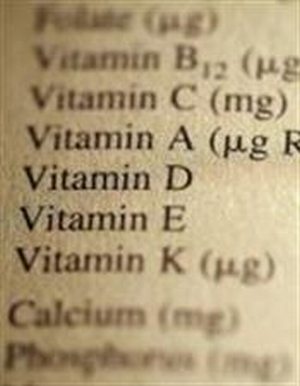Vitamin D May Help Explain Racial Differences in Blood Pressure
Vitamin D May Help Explain Racial Differences in Blood Pressure
High blood pressure, or hypertension, is more common and often more deadly in blacks than in whites, and a new University of Rochester study shows that low vitamin D levels among black people might be a powerful factor that contributes to the racial differences in hypertension.

The University of Rochester Medical Center findings, published online today in the Journal of General Internal Medicine, are consistent with growing evidence that lower vitamin D status is associated with higher blood pressure, and that people with darker skin generally produce less vitamin D.
“Our study confirms that vitamin D represents one piece of the complex puzzle of race and blood pressure,” said lead author Kevin Fiscella, M.D., professor of Family Medicine at URMC. “And, since black-white differences in blood pressure represent thousands of excess deaths due to heart disease and stroke among blacks, we believe that simple interventions such as taking vitamin D supplements might have a positive impact on racial disparities.”
Fiscella and colleagues analyzed data from the National Health and Nutrition Examination Survey, 2001-2006. Their sample included nearly 2,000 blacks and approximately 5,100 non-Hispanic whites, ages 20 and older. Researchers specifically compared the average systolic pressure and blood levels of vitamin D among the study participants.
Most vitamin D is produced by the skin in response to sunlight and metabolized in the liver where it is converted to 25 hydroxyvitamin D or 25(OH) D, the form used to determine a person’s vitamin D status through a blood test. Deficiency is usually defined as less than 20 nanograms per milliliter; lower than 15 Ng/ml is inadequate to maintain bone health and normal calcium metabolism.
Many people around the world have low concentrations of vitamin D. Genetic factors common to blacks, such as darker skin, reduce vitamin D synthesis. In addition, a higher incidence of lactose intolerance among blacks, which can eliminate vitamin-D fortified milk from the diet, contributes to lower dietary intake, previous research has shown.
Notably in Fiscella’s data, 61 percent of blacks compared to 11 percent of whites had vitamin D levels in the lowest one-fifth of the population sample, whereas only 2 percent of blacks compared to 25 percent of whites had D levels in the highest group.
However, Fiscella noted some limitations to the study, and said that vitamin D did not fully explain the racial differences in blood pressure. “It is likely that other factors beyond vitamin D, such as psychological stress, medication adherence, and discrimination could contribute to this disparity,” he wrote said in the JGIM article. “Further study using more refined measures of skin color is needed to tease apart the complex relationship between skin type, stress, vitamin D, and hypertension.”
Kevin A. Fiscella, M.D., M.P.H.
University of Rochester
School of Medicine and Dentistry
601 Elmwood Ave., Family Medicine Research Programs
Rochester, NY 14642
Appointment: (585) 436-3040

> Research Bio
Kevin received his BA in psychology from Antioch College, his MD from the Medical College of Virginia, and his MPH degree from the University of Rochester. He completed a faculty development fellowship through the University of Rochester Department of Family Medicine, training in family therapy through the Department of Psychiatry and joined the faculty in 1996. He is Associate Director of the Rochester Center to Improve Communication in Health, Co-Director of Community Engagement for the Rochester Clinical Translational Science Institute, Co-Director of the Greater Rochester Practice Research Network and HIV Clinical Coordinator for Westside Community Health Center.
His clinical interests are in the area of care of chemically dependent HIV+ persons and office management of chronic pain. His research interests are in the area of racial and socioeconomic disparities in health status, the effects of poverty on family function, and health services to underserved populations, particularly those at risk for cancer and heart disease. He is currently directing projects funded by the American Cancer Society, National Cancer Institute, and National Heart Lung and Blood Institute.
> Awards & Honors
Nominee for the David Satcher Community Health Improvement Award 2010
Oustanding Peer Reviewer, Medical Care 2009
Nominated for AAMC Humanism in Medicine Award | University of Rochester 2005
> Education
MPH | University of Rochester 1996
MD | Medicine | Medical College of Virginia 1980
BA | Arts & Sciences | Antioch College 1976
> Specialties
Geriatric Medicine – American Board of Family Practice
Family Medicine – American Board of Family Medicine
> Post-Doctoral Training & Residency
Residency in Family Practice at Buffalo General Hospital 07/01/1981 – 06/30/1983
Internship in Family Medicine at Buffalo General Hospital 07/01/1980 – 06/30/1981
> Current Appointments
Professor – Department of Family Medicine (SMD) – Primary
Professor – Department of Community and Preventive Medicine (SMD)
Professor – Cancer Center
Professor – Center for Community Health
* The National Heart Lung and Blood Institute funded the research.
** The above story is adapted from materials provided by University of Rochester Medical Center




















